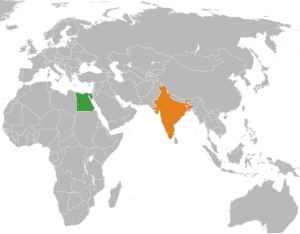FDA puts block on Ranbaxy products
pharmafile | March 4, 2009 | News story | Manufacturing and Production | Ranbaxy
India’s Ranbaxy Laboratories has been dealt another blow by the FDA after the agency suspended regulatory review of any products made at the firm’s manufacturing facility in Paonta Sahib.
The US regulator said it took the Application Integrity Policy (AIP) action – the second sanction against Ranbaxy in the last six months – because of evidence of falsified laboratory testing in product marketing authorisation dating back to 2006.
The transgressions include “untrue statements” in stability information filed by the company in which it had failed to provide “critical information about the storage and testing” of product.
Some of the drugs affected by the existing import hold and now the AIP include generic versions of the antifungal fluconazole, antibiotic ciprofloxacin and cholesterol-lowering drug simvastatin.
An FDA audit of stability data filed for 15 approved generic medicines found a combined total of 1,676 errors.
They included “errors in entries for the dates of analyses, packaging and errors in stability test results”. In some cases records were found bearing the signature or initials of staff who were not present on the documented dates.
Last September, the agency put an import ban in place on Ranbaxy products made in Paonta Sahib and two other facilities, Dewas and Batamandi, citing non-compliance with Good Manufacturing Practice (GMP) standards.
That action prevented the importation of 30 different generic drugs into the USA and remains in effect.
The latest action only involves the Paonta Sahib facility and affects drugs destined for the US market, either approved or unapproved, as well as some products that are manufactured in the US but rely on data from the facility.
Ranbaxy declined to comment on the matter outside of a prepared statement which pointed out that “the FDA has said it has no evidence the drugs on the market are substandard and also that they comply with specifications upon testing”.
Meanwhile, Canada’s regulatory authority has asked Ranbaxy’s local company to quarantine any products manufactured at Paonta Sahib. The European Medicines Agency said it is not looking at the case because none of Ranbaxy’s products have been submitted under the EU’s centralised procedure.
The UK’s Medicines and Healthcare products Regulatory Agency (MHRA) said in emailed statement that it was investigating the matter.
It added: “Many of the findings that have given rise to the FDA concerns appear to have arisen from the associated Batamandi site. The Batamandi site does not supply products to the UK.”
“There are no data verification concerns arising from these inspections and as such product continues to be supplied,” the agency continued.
The MHRA said it inspected the Paonta Sahib plant last October and has visited it in conjunction with other regulators since then.
Related Content

Sun Pharma inaugurates first Egypt production facility
Ranbaxy, a subsidiary of India’s Sun Pharma, has opened its first production facility in Egypt …

Daiichi pulls out of India with closure of 170-strong R&D plant
Japanese pharma firm Daiichi Sankyo has announced its intention to close its R&D centre in …

Sun Pharma sacks 18 Ranbaxy executives
Sun Pharma has asked 18 executives to leave the company who were previously a part …






